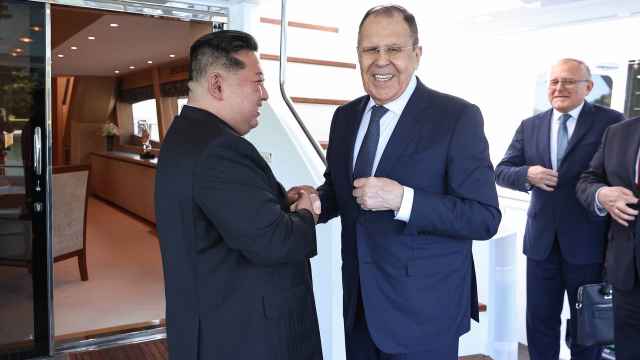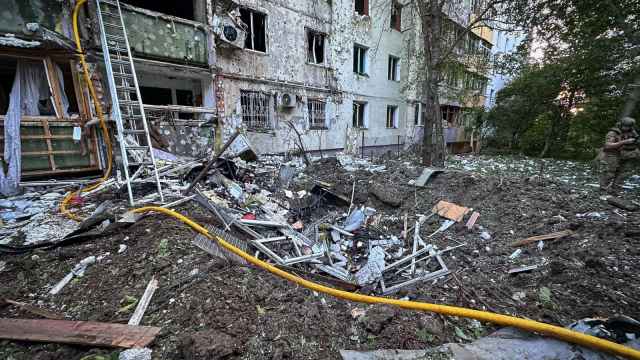KIYANLY, Turkmenistan — Malaysia's national energy company Petronas has drawn its first natural gas from a field off the coast of the Central Asian nation of Turkmenistan.
Turkmen President Gurbanguly Berdymukhammedov said production at the field in the Caspian Sea would start at 5 billion cubic meters annually and eventually double. He spoke at the official opening ceremony of a Petronas gas refining plant Tuesday.
Turkmenistan, which exports to Russia and Iran, is buying the gas from Petronas.
The Central Asian nation has vast onshore gas reserves but has resisted overtures by foreign investors eager to develop them. It has, however, urged international companies to invest in more technically challenging undersea reserves.
Petronas' "total investment in the country is $5 billion, and the presence of a company like Petronas serves as a vote of confidence in the future of Turkmenistan's energy sector," Malaysian Prime Minister Najib Razak said at Tuesday's inauguration ceremony.
Germany's RWE is also developing an offshore gas block and is exploring delivery routes to Europe.
Other major energy producers remain hopeful that Turkmenistan will allow them to develop large reserves, such as the South Yolotan field near Afghanistan. Independent auditors estimate that field to be the fourth largest in the world.
Turkmenistan estimates that it is sitting on top of 24.6 trillion cubic meters of gas — enough to supply the European Union for half a century at current consumption levels. Petronas has been developing the Caspian block since 1996.
Lobbying has intensified over the past year for the creation of a trans-Caspian pipeline, which would link Turkmenistan with fellow former Soviet state Azerbaijan. Gas carried through that route would then be fed into the EU-backed Nabucco pipeline and transported to Western Europe.
Many industry watchers are skeptical about the prospects for Nabucco, however, and say that spiraling cost projections for the pipeline and a lack of supplies caused by rival Russian projects mean that it may never be built.
A Message from The Moscow Times:
Dear readers,
We are facing unprecedented challenges. Russia's Prosecutor General's Office has designated The Moscow Times as an "undesirable" organization, criminalizing our work and putting our staff at risk of prosecution. This follows our earlier unjust labeling as a "foreign agent."
These actions are direct attempts to silence independent journalism in Russia. The authorities claim our work "discredits the decisions of the Russian leadership." We see things differently: we strive to provide accurate, unbiased reporting on Russia.
We, the journalists of The Moscow Times, refuse to be silenced. But to continue our work, we need your help.
Your support, no matter how small, makes a world of difference. If you can, please support us monthly starting from just $2. It's quick to set up, and every contribution makes a significant impact.
By supporting The Moscow Times, you're defending open, independent journalism in the face of repression. Thank you for standing with us.
Remind me later.





